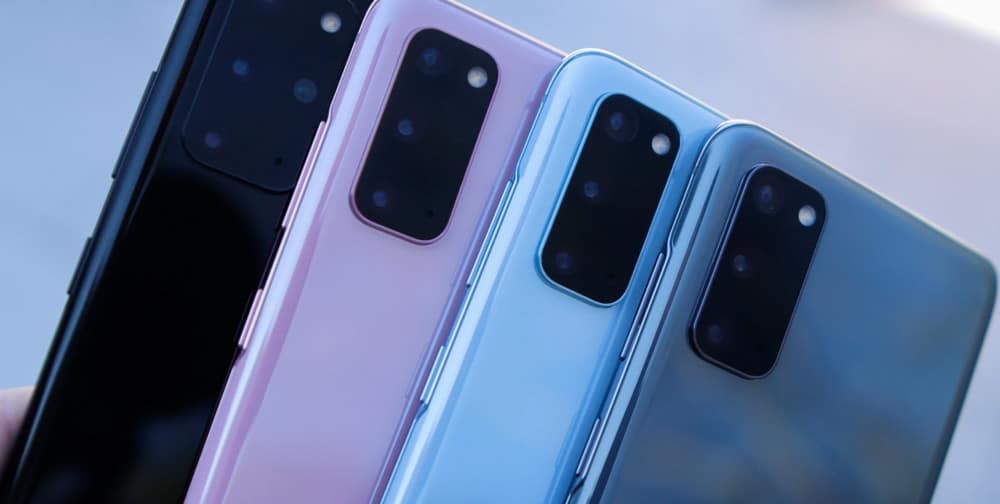If you’re looking for an Android phone with an SD card slot, you’ve got some excellent options right now – here are our #1 picks for 2020…
Top-Rated Android Phones With SD-Cards:
- Samsung Galaxy S20 series
- Samsung Galaxy Note 10 Lite/Plus
- Sony Xperia 1 and 5
- Asus Zenfone 6
- LG V60 ThinQ
- ZTE Axon 10 Pro
- Oppo Reno 10x Zoom
- LG G8X ThinQ
As of right now, these are the newest and best options for those of you looking for an Android phone with expandable storage. As more launch, we’ll add more to this list. But as of right now (mid-2020), these are your best options with respect to design, specs, and overall performance.
Benefits of Expandable Storage on Phones
Most phones these days, like 90%, do not feature expandable storage. Apple’s iPhones have never featured expandable storage, neither have Google’s Pixel phones. And the Nexus phones before it. This means that if you want a phone with SD-card support, you need to shop outside of Apple and Google’s ecosystem.

Most people, therefore, manage just fine without SD cards. But what are the benefits using expandable storage versus, say, solutions like Apple’s iCloud? Here are some of the #1 reasons why a lot of people swear by SD cards. As always, these are cherry-picked from copious hours of research and things we’ve discovered during our own experiences using phones over the years.
- Easy File Access – With an SD card, you have a simple method for storing and accessing data on your phone. The SD card goes everywhere with you, can be accessed from inside apps, and can store all kinds of files, from PDFs and text files to movies, music, and TV Shows. And once they’re on the SD card, there’s no need to download stuff or stream; it just plays off the SD card in whatever app is most appropriate.
- Security – Storing your data on the cloud, or online, isn’t the most secure place to keep things. Files online can easily be compromised by motivated hackers, all it takes it some nefarious code or a password exploit and they’re in, exploring all your secrets. With an SD card, the data is stored locally, inside your phone. This makes it slightly more secure, as you’ll need a fingerprint or pin to access it. You can also add additional layers of encryption to SD cards to make them even more secure.
- No Need For The Cloud – If you have a 250GB SD card, you no longer need to pay for additional cloud storage from Google or Dropbox. You can store all your media – videos and images – on your SD card. And once they’re on there, you can then access them wherever you like, and you won’t even need an internet connection, either.
- Ideal For ShutterBugs – If you take a lot of photos and videos, or you’re a professional that likes to edit on the move, a phone with an SD card is a must. You can store all your images and video on the card and this means you will be able to edit and augment your files on the move. On top of this, the stored data on your SD card will not affect your phone’s internal storage either.
- Store Hundreds of Movies & TV Shows – Another big reason to use SD cards is if you download and watch a lot of media on your phone. With an SD card, you can store potentially hundreds of movies and TV shows on your phone. You’ll be able to access them without an internet connection, regardless of where you are, and your phone’s storage will remain completely untouched, so you can download something to your phone and then move it to your SD card.
As you can see, there are PLENTY of reasons to use SD cards in your phone. They’ll help you free up storage, allow you to save you data and media in a more secure location, and you’ll be able to access them on planes and other places without an internet connection. All you’ll need is a phone that supports SD cards.
If you have a phone that supports SD cards, you need to check out our guide to the best MicroSD cards right now. As of right now, our #1 favorite pick for microSD cards is currently SanDisk’s 400GB SD card; it’s lightning-fast with regards to read/write speeds and with 400GB of storage, you’ve got tons of room for all your media and files.

